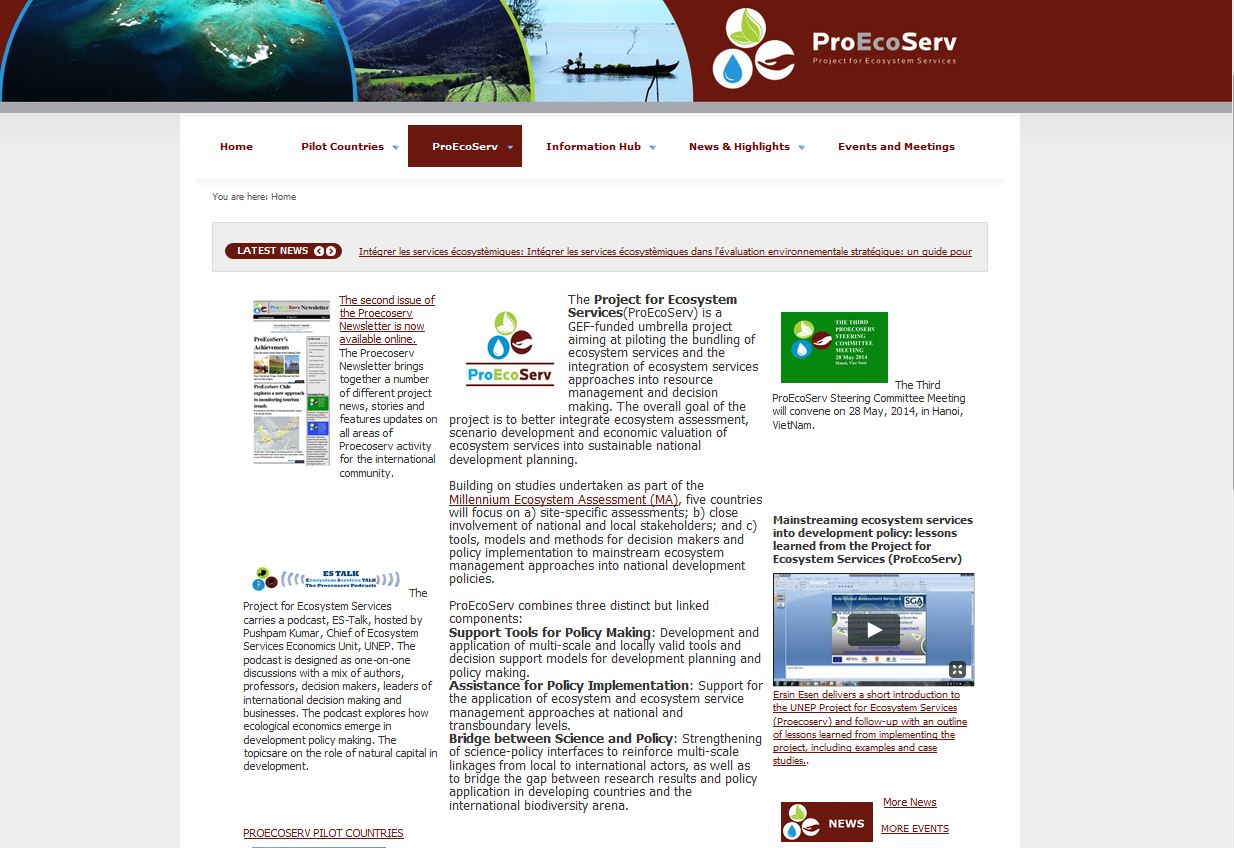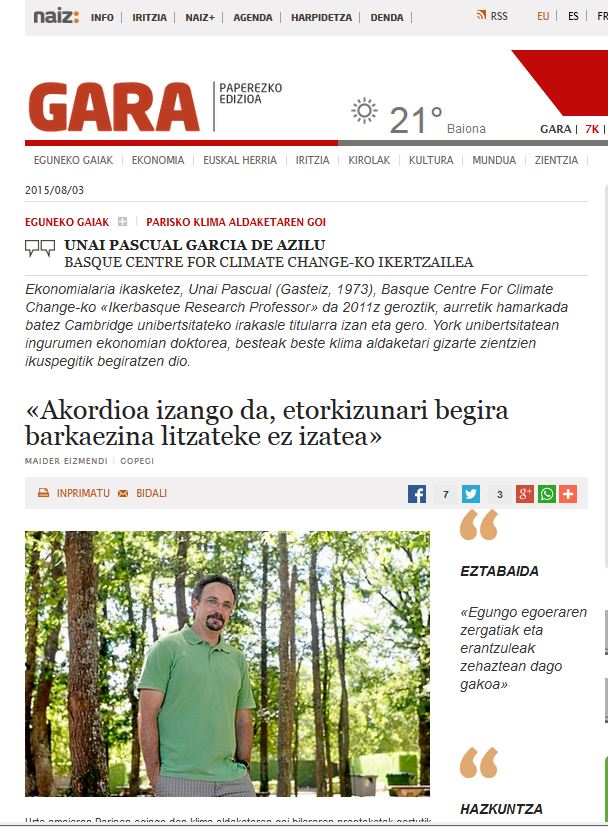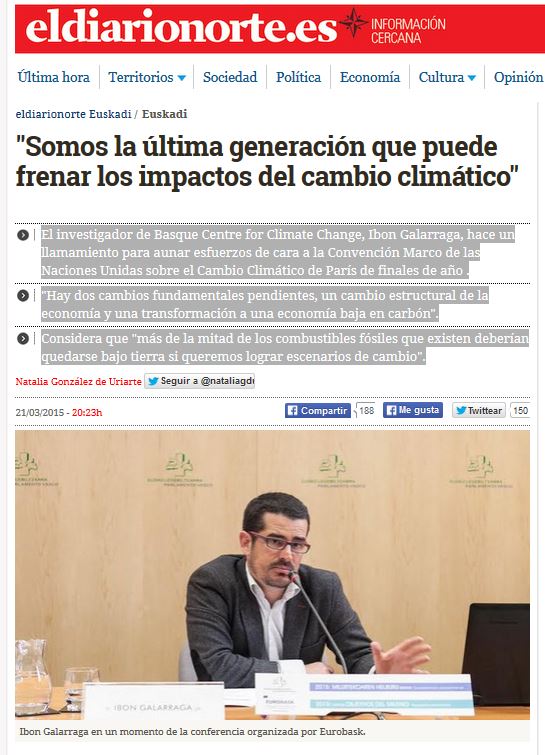A partir de Enero de 2016 todas las Noticias de BC3 estarán disponibles en news.bc3research.org.
Las Noticias anteriores a Enero 2016 se muestrran a continuación
BC3 en los medios
"Kostaldeari begira, eta metroa eskura" Berria Egunkaria
Monday, 05 de October de 2015
Klima aldaketak XXI. mendean euskal kostaldean izango duen eragina aztertu dute hainbat adituk, besteak beste BC3, Basque Centre for Climate Change ko ikerlaria den Elisa Sainz de Murietak .
Beren ikerketen emaitzak Uhinak kongresuan aurkeztuko dituzte, asteon, Irunen
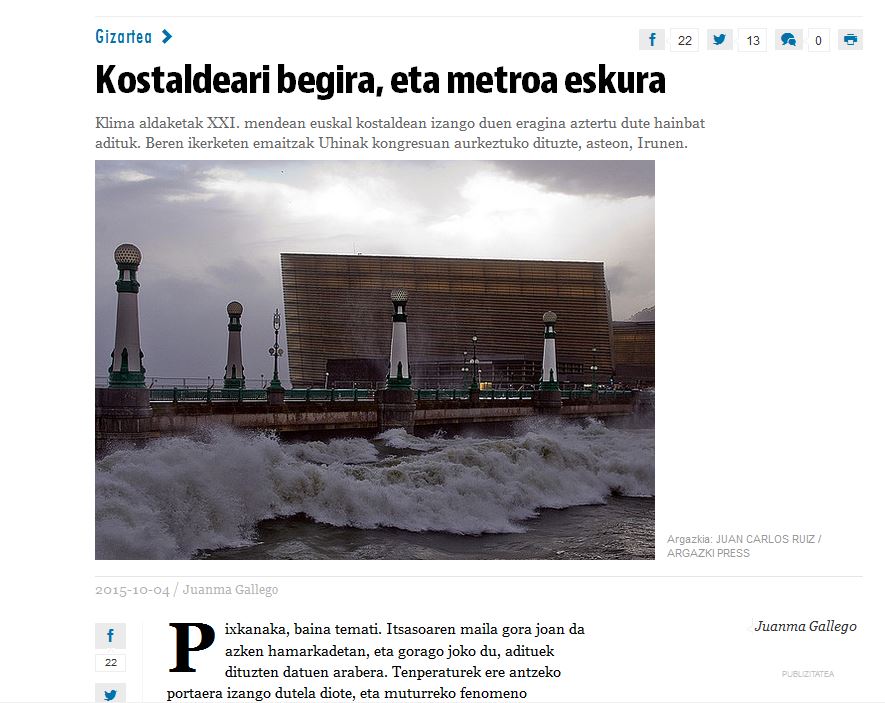
Irakurri berri oso hemen (Iturria Berria Egunkaria)
Prof. Markandya endorsed the Economists’ Declaration on Universal Health Coverage
Friday, 25 de September de 2015
Prof. Anil Markandya , Scientific Director of BC3, Basque Centre for Climate Change, is among the 267 experts in 44 countries who have made a declaration at the Lancet that universal health coverage is a smart, affordable investment to save millions of lives, protect livelihoods and strengthen economies.
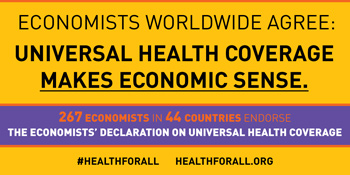
Universal health coverage means ensuring that everyone can obtain essential health services at high quality without suffering financial hardship.
Published in the Lancet , scientific journal (http://www.thelancet.com/pdfs/journals/lancet/PIIS0140-6736%2815%2900242-1.pdf ) ahead of the United Nations Sustainable Development Summit 2015 https://sustainabledevelopment.un.org/post2015/summit the experts say this is a crucial moment for global leaders to reflect on financial investments to maximise progress by 2030.
The declaration was made by economists on every continent, five Nobel Laureates, current and former Chief Economists of the World Bank and leading experts in health and development economics.The signatories urged that;
- Heads of government increase domestic funds for global health
convergence and provide vocal political leadership to implement policy
reforms toward pro-poor universal health coverage;
- Donor countries meet their pledges for international development assistance and commit to investing in the global functions of development assistance for health, particularly research and development for diseases of poverty;
- Development financing discussions explicitly address equity, including who pays domestically and who benefits;
- National policymakers embrace universal health coverage, as defined above, as an integrated approach for measuring progress toward health targets in the post-2015 global development framework.
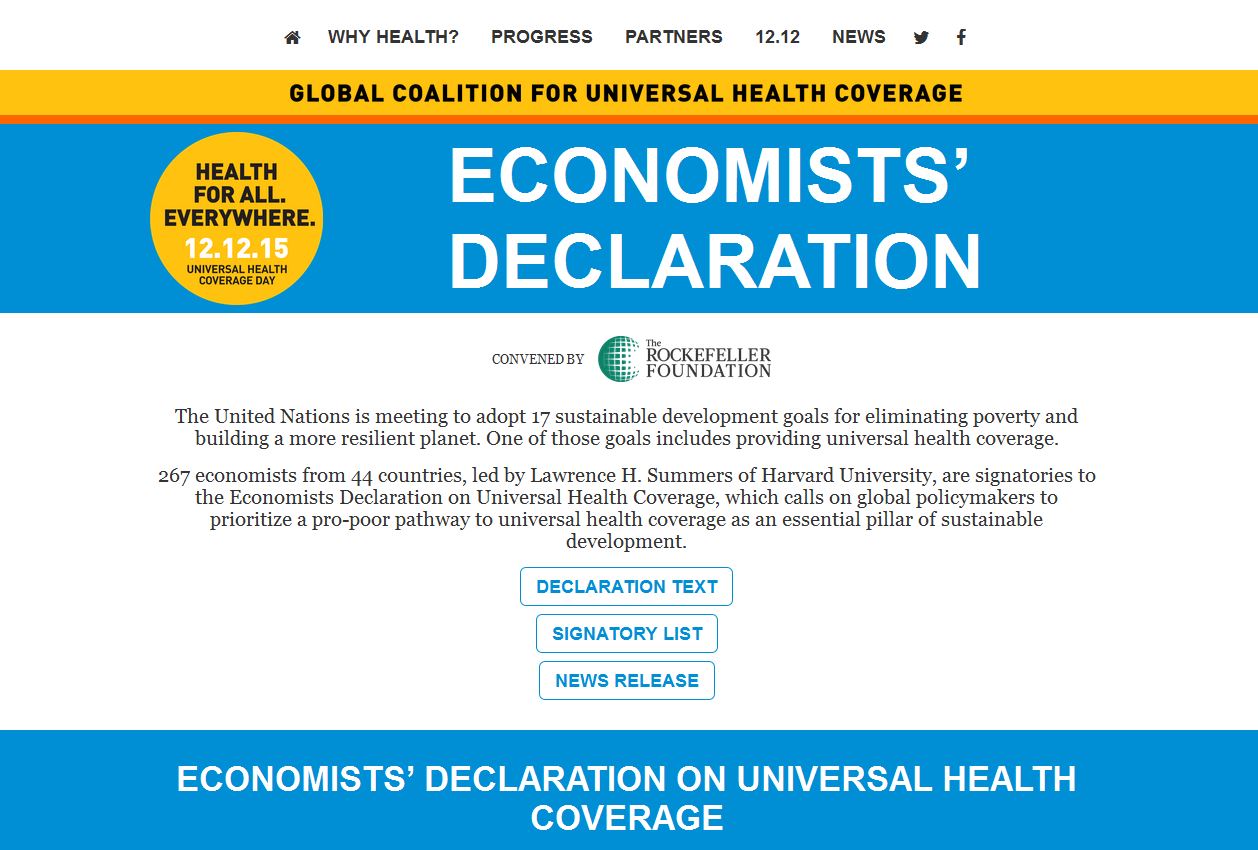
http://universalhealthcoverageday.org/economists-declaration/
With the United Nations set to launch the bold sustainable development agenda (25-27 Sept) , this is a crucial moment for global leaders to reflect on the financial investments needed to maximize progress by 2030. As an input into deliberations around those investments, the signatories to this declaration, 267 economists from 44 countries, call on global policymakers to prioritize a pro-poor pathway to universal health coverage as an essential pillar of development.
Universal health coverage means ensuring that everyone can obtain essential health services at high quality without suffering financial hardship. Resource constraints require individual countries to determine their own definition of “essential” – while recognizing, in the words of former World Health Organization Director-General Gro Harlem Brundtland, that “... if services are to be provided for all, not all services can be provided. The most cost-effective services should be provided first.”
Even granted this recognition of resource constraints, our generation has a historic opportunity to achieve a “grand convergence” in global health, reducing preventable maternal, child, and infectious disease deaths to universally low levels by 2035. In its report, Global Health 2035, the Lancet Commission on Investing in Health showed that with today’s powerful tools for improving health, and the prospect for continued improvement in those tools, financially feasible universal health coverage in every country could lead to grand convergence with its accompanying benefits in both health and in protection from health-related financial risks. (1)
We amplify these points below.
Our global society has a vested interest in investing in health to transform lives and livelihoods.
• Health is essential to eradicating extreme poverty and promoting growth of well-being. (2,3) Over the past decade, health improvements – measured by the value of life-years gained – constituted 24% of full income growth in low- and middle-income countries. (1)
• Health systems oriented toward universal health coverage, immensely valuable in their own right, produce an array of benefits: in times of crisis, they mitigate the impact of shocks on communities; in times of calm, they foster more cohesive societies and productive economies.
• The economic benefits of investment in grand convergence are estimated to be more than 10 times greater than costs – meaning that early stages on the pathway to universal health coverage, focused on high-payoff convergence interventions, will have high value relative to the cost of raising revenue, including the deadweight (or welfare) cost of taxation, or (in most cases) to the value of its use in other sectors. (4)
The success of the next development chapter hinges on the ability to actually deliver proven health solutions to the poorest and most marginalized populations.
• There is a strong record of public sector and development assistance success in the finance and delivery of transformative health interventions – immunizations, treatment of HIV/AIDS, tuberculosis and childhood infections, and eradication or near eradication of major communicable diseases. At the same time most countries have experienced difficulties with delivering primary and secondary care in both the public and private sectors. Continued progress toward universal health coverage will require addressing these delivery problems.
• 150 million people fall into poverty every year paying for health out-of-pocket. (5) By pooling funding and providing early access to health services, universal health coverage reduces reliance on out-of-pocket payments, thereby protecting households from impoverishing financial risks.
• The Ebola virus disease epidemic has reminded us that we are only as strong as our weakest links. The debilitating effect of Ebola could have been mitigated by building up public health systems in Guinea, Liberia and Sierra Leone at one third the cost of the Ebola response so far. (6)
Every country has the opportunity to achieve universal health coverage.
• More than 100 countries across the development spectrum have begun working toward universal health coverage – testing and increasingly demonstrating its feasibility.
• Countries will find greatest value for money by financing for everyone convergence-related services that are high-quality and free or low cost at the point of delivery. As their domestic resources increase, countries would expand the package of essential services that are publicly financed for all.
• Most countries have the capacity to raise more domestic funds for health through improved tax systems and innovative financing mechanisms. And given anticipated economic growth across low- and lower-middle-income counties, most countries will have additional financial means to invest more in health services and delivery. When allocated efficiently, greater investments in health can result in lower overall costs to the system. (1)
Development assistance for health will play an essential part in achievement of a grand convergence in global health and universal health coverage.
• Domestic funding alone will not be enough for many low-income countries to provide even the convergence-related health services. Focusing the available country-specific health aid on the convergence interventions in low-income (but committed) countries can provide invaluable help.
• A grand convergence in global health will be greatly helped by substantial investments from donors in the neglected global functions of development assistance for health: providing global public goods such as health research and development, dealing with cross-border externalities such as pandemics and antimicrobial resistance, and supporting leadership and stewardship of global institutions. Adequate finance of these global functions is likely to prove the most efficient path to improving conditions of the poor in middle-income countries. (7)
We, the undersigned, therefore urge that:
• Heads of government increase domestic funds for global health convergence and provide vocal political leadership to implement policy reforms toward pro-poor universal health coverage;
• Donor countries meet their pledges for international development assistance and commit to investing in the global functions of development assistance for health, particularly research and development for diseases of poverty;
• Development financing discussions explicitly address equity, including who pays domestically and who benefits;
• National policymakers embrace universal health coverage, as defined above, as an integrated approach for measuring progress toward health targets in the post-2015 global development framework.
• • •
Even with substantial rates of economic growth, resources for health (and other sectors) will remain highly constrained. The intrinsic value of improved health – and the demonstrated potential of governments and aid agencies to deliver key health interventions – points to maintaining and expanding commitment to health through investing in pro-poor pathways to universal health coverage. Amartya Sen has labeled this opportunity “the affordable dream.”
Publication:
• Lawrence H Summers et al. Economists' Declaration on Universal Health Coverage. The Lancet. DOI: 10.1016/S0140-6736(15)00242-1
Prof. Markandya keynote speaker at the final workshop of ProEcoServ
Friday, 25 de September de 2015
The Final Workshop on the Project for Ecosystem Services (ProEcoServ) http://www.proecoserv.org is to be held on 28-29 September, at UNEP Headquarters in Nairobi.
Prof. Markandya, Scientific Director of the Basque Centre for Climate Change (BC3), will participate in this workshop as a keynote speaker addressing a presentation entitled "Mainstreaming of natural capital for inclusive green economy".
The Project for Ecosystem Services(ProEcoServ) is a GEF-funded umbrella project aiming at piloting the bundling of ecosystem services and the integration of ecosystem services approaches into resource management and decision making. The overall goal of the project is to better integrate ecosystem assessment, scenario development and economic valuation of ecosystem services into sustainable national development planning.
Building on studies undertaken as part of the Millennium Ecosystem Assessment (MA), five countries will focus on a) site-specific assessments; b) close involvement of national and local stakeholders; and c) tools, models and methods for decision makers and policy implementation to mainstream ecosystem management approaches into national development policies.
ProEcoServ combines three distinct but linked components:
Support Tools for Policy Making: Development and application of multi-scale and locally valid tools and decision support models for development planning and policy making.
Assistance for Policy Implementation: Support for the application of ecosystem and ecosystem service management approaches at national and transboundary levels.
Bridge between Science and Policy: Strengthening of science-policy interfaces to reinforce multi-scale linkages from local to international actors, as well as to bridge the gap between research results and policy application in developing countries and the international biodiversity arena.
Download the Full Agenda of EcoProserv Final Workshop here
Parisko Klima Aldaketaren Goi Gailurraren gainean, Prof. Unai Pascual-ek "Gara" -n
Monday, 03 de August de 2015
" Palma olioaren arrasto beltza", Eneko Garmendiak , Berria-n eskeinitako elkarrizketa
Thursday, 25 de June de 2015
Bizigiro (Berria) egunkariak, BC3ko ikerlaria den Eneko Garmendia elkarrizketatu zuen. Jorratutako gaia "palmondoak".
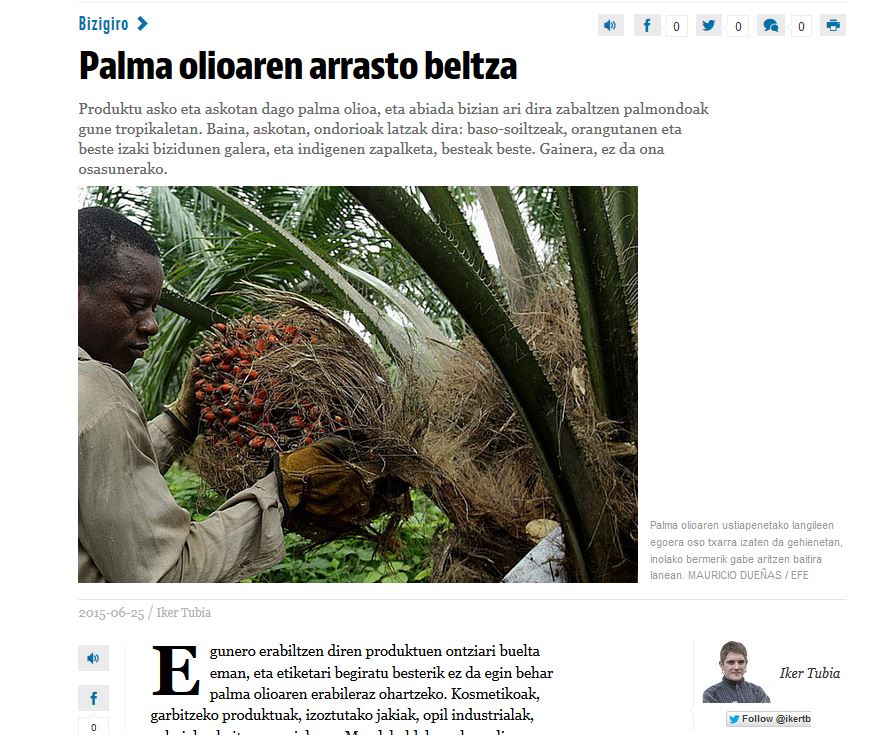
Irakurri elkarrizketa osoa hemen (Iturria BERRIA)
Eneko Garmendiak Hirigorria (EITB) irratio saioan eskainitako elkarrizketa
Thursday, 25 de June de 2015
Palma olioak eragiten duen suntsiketaz haritu zen BC3ko ikerlaria den Eneko Garmendia ."Euskal Herria: ezkutuko zorra"Indonesian grabatutako dokumentalean jorratzen den gaia habiapuntu hartuta, Hirigorria irrati saioak (EITB) Eneko Garmendia-rekin izandako elkarrizketa.
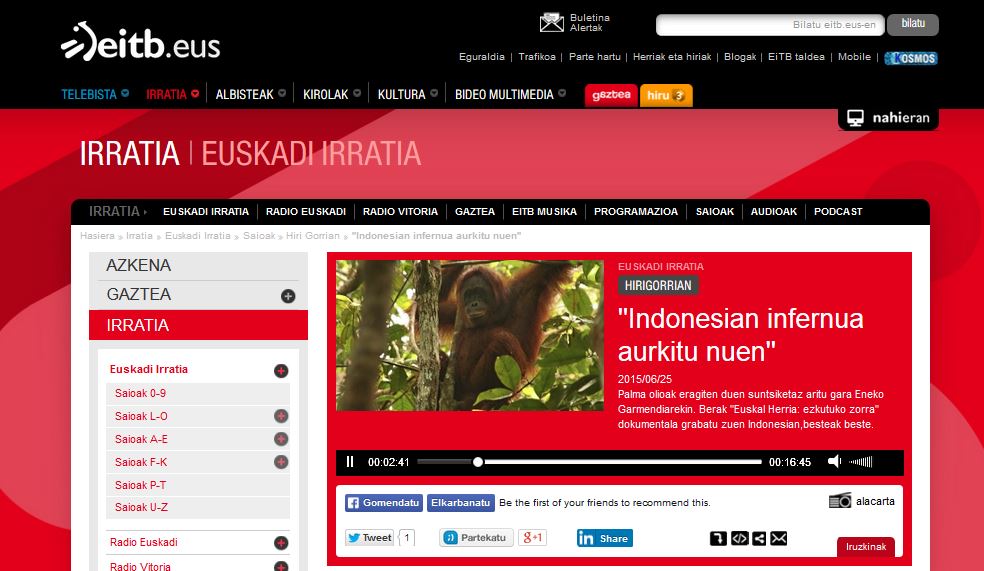
Entzun elkarrizketa hemen (Iturria EITB)
"Emisiones asociadas a los residuos orgánicos en forma sólida"
Monday, 30 de March de 2015
La revista RETEMA (Revista Técnica de Medio Ambiente) publicóen su número 181 un artículo de los investigadores de BC3 Guillermo Pardo y Agustín del Prado ."Emisiones asociadas a los residuos orgánicos en forma sólida: Influencia de la forma de manejo".
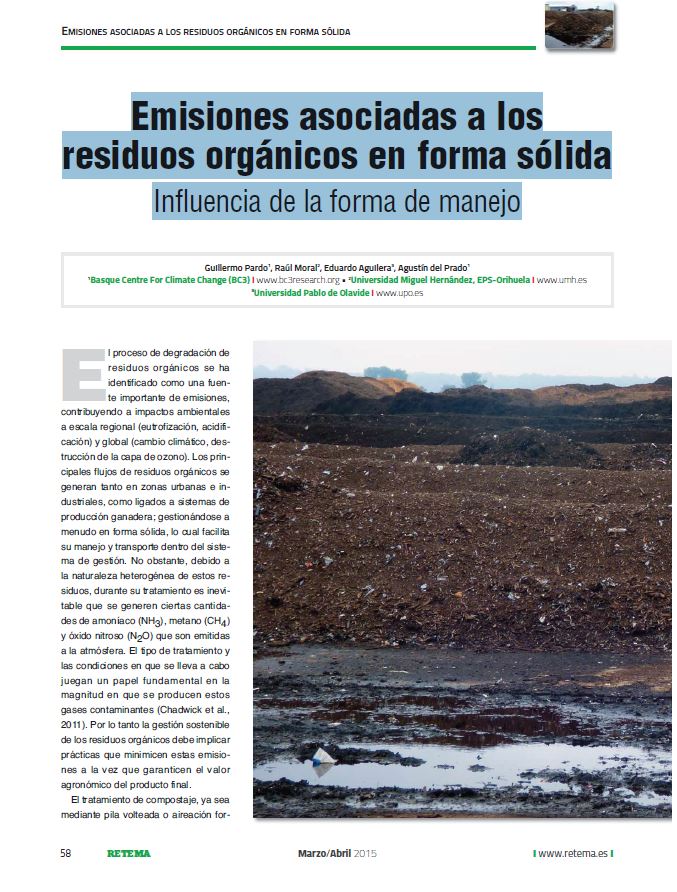
Articulo retema n181-1 20150330
El Prof. Sergio Faria explica qué es el "hiato del clima"
Friday, 12 de June de 2015
El Prof. Ikerbasque Sergio H. Faria, investigador en BC3 https://www.bc3research.org/en/sergio_faria, explica en el programa de divulgación científica "La mecánica del Caracol", qué es el "hiato del clima".
Entrevista del Prof. Sergio Faria para "La Mecánica del Caracol"
Tuesday, 21 de April de 2015
Sergio H. Faria,
investigador de BC3 e Ikerbasque Professor, describe las investigaciones sobre
la evolución del clima que permite realizar el hielo de hasta 800.000 años extraído
en la Antártida en la entrevista ofrecida para el programa de Radio
Euskadi "La mecánica del Caracol" (20-04-2015).
¿Quieres conocer el libro blanco sobre la mitigación del cambio climático en la agricultura española
Monday, 23 de March de 2015
CAMBIO CLIMÁTICO. Workshop REMEDIA 2015
El libro blanco sobre la mitigación del cambio climático en la agricultura, la tercera actividad humana en la emisión de gases de efecto invernadero en España, se presentará la esta semana durante la reunión científica internacional, REMEDIA 2015.
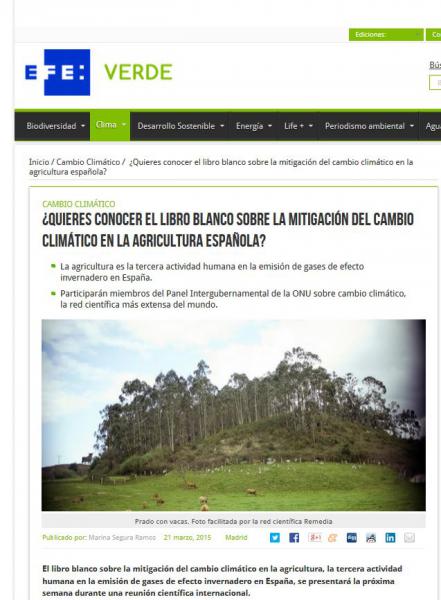
Descargar la noticia aquí (Fuente EFE Verde)
"Somos la última generación que puede frenar los impactos del cambio climático"
Monday, 23 de March de 2015
El investigador de Basque Centre for Climate Change, Ibon Galarraga, hace un llamamiento para aunar esfuerzos de cara a la Convención Marco de las Naciones Unidas sobre el Cambio Climático de París de finales de año , en el marco dela conferencia organizada por Eurobask.
"Hay dos cambios fundamentales pendientes, un cambio estructural de la economía y una transformación a una economía baja en carbón".Considera que "más de la mitad de los combustibles fósiles que existen deberían quedarse bajo tierra si queremos lograr escenarios de cambio".
- Elhuyar Aldizkaria (Ekinean): Maialen Garmendia, BC3ko Ikerlaria
- Agustín del Prado y Guillermo Pardo, presentan un estudio sobre la reducción GEI en Radio Euskadi
- Iñaki Arto (Berria): «'Fracking'-ak ere gaindituko du bere produkzioaren gailurra»
- "Una Política Climática Ambiciosa". Por Anil Markandya, Teresa Ribera e Ibon Galarraga
- Entrevista concedida por el Dr. Iñaki Arto a la revista "Consumer"
- Comparecencia de Ibon Galarraga en el Parlamento Vasco
- Noticia Euskadi.net "COP´20 LIMA Galarraga"
- "El profesor del BC3 Ibon Galarraga participa en los debates del COP20 de Lima", Europapress
- Unai Pascual explica la importancia del medio rural ante el CC en "La mecánica del caracol"
- Klimagune 2014: Entrevista ofrecida por el Prof. Pascual para "Boulevard"
Resultados 1 - 21 de 224

